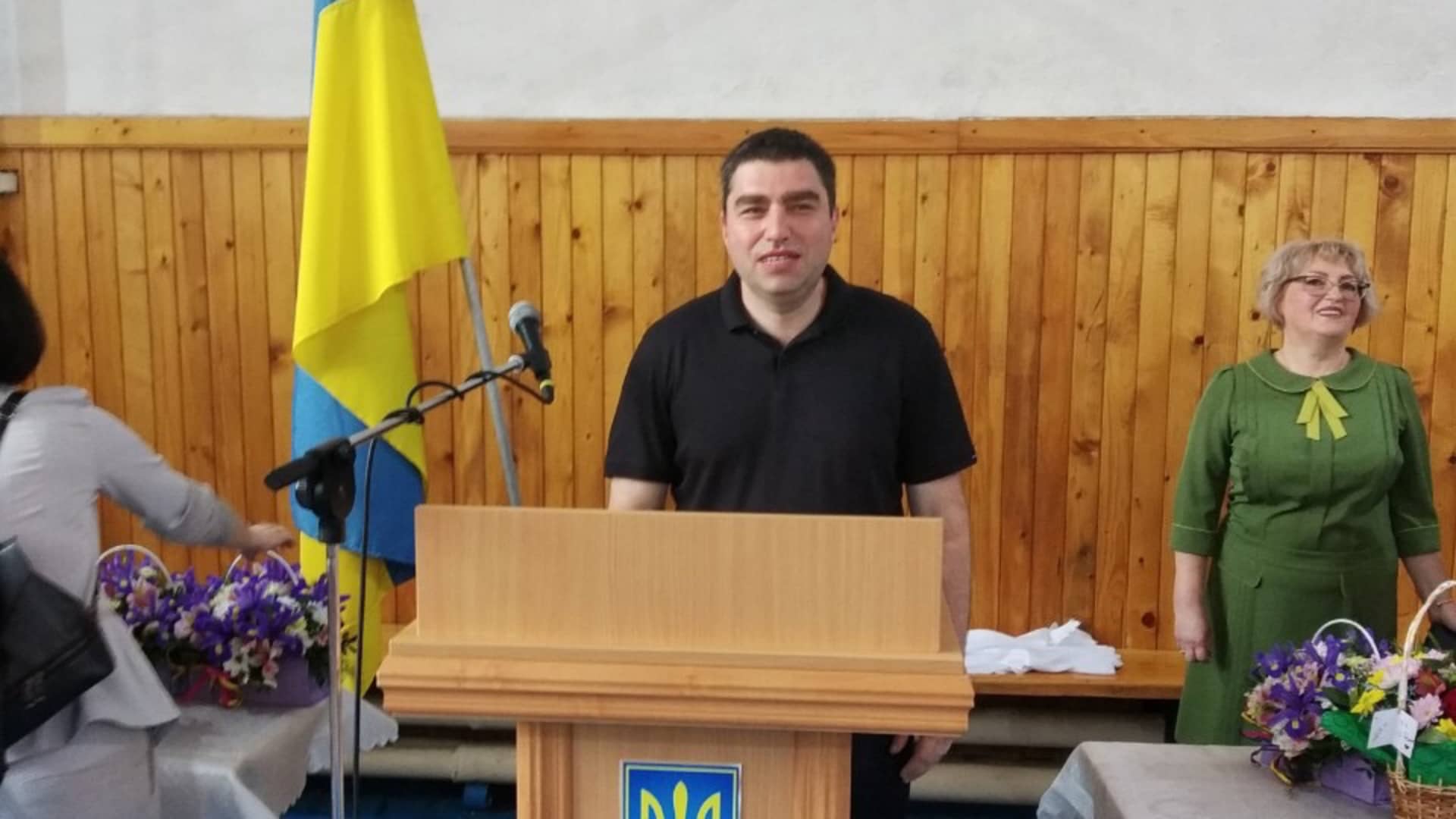A Ukrainian techie combined ‘code and people’ to raise $3.5 million so far for families back home

A little over a month into Russia’s assault on Ukraine, Alex Iskold is trying to reckon with the reality in his homeland while lending a hand the best way he knows how.
Iskold, who immigrated to the U.S. from Ukraine at age 19, is a venture capitalist and managing director of 2048 Ventures in New York. He’s also a tech entrepreneur and co-founder of the 1K Project, a nonprofit that allows anyone to donate $1,000 directly to a Ukrainian family.
So far, the project has raised more than $3.5 million and helped 3,500 families. But Iskold, now 49, knows the crisis ahead for Ukraine, a country of 44 million people, is poised to deepen no matter when the fighting ends.
More than 4 million Ukrainians have fled to neighboring countries, with more than half entering Poland, as the Russian military has pounded population centers. Millions more are certain to lack basic necessities far into the future, and will need money for food, medicine, clothing and transportation.
“There’s a lot of ways you can donate, but when you donate direct relief, you know one family is better off because you helped them,” Iskold said in an interview.
For a family of three to four, $1,000 lasts only about a month, he said. With more than 70,000 families already waiting for support and more applications coming in by the hour, the project needs individual and corporate sponsors to keep contributing.
“This is a strong call to action, because companies could make a significant difference, and we’re confident we’re the right vessel for delivering the aid,” he said. “Hopefully companies can step up and help us get to more families.”
The concept behind the 1K Project is simple: An individual donates $1,000, which gets sent directly to a Ukrainian family.
‘Coping mechanism’
Iskold launched the 1K Project for a different purpose. He and Chrysi Philalithes, a fellow entrepreneur and start-up investor, created it in 2020 to assist Ukrainian families during the Covid-19 pandemic. Iskold revived it when Russia invaded Ukraine.
“For me, the 1K Project is an outlet, a coping mechanism,” said Iskold, who left Ukraine in the early 1990s to escape antisemitic persecution. “I could be sitting on the couch watching television for hours, or I could help in a different way.”
The 1K Project team consists of more than 50 volunteers, many working 10 hours a week, from across the U.S. as well as in Latvia, Ukraine, France and Kazakhstan. The operations team, responsible for reviewing family applications and responding to sponsors, includes some high school students and Iskold’s own children. Engineers come from such companies as Techstars, Yahoo, Mozilla, Venmo and Citigroup.
“We have the best engineering talent I’ve ever seen,” Iskold said. “They’re moving at the speed of light.”
The group needs it because “the engineering challenge is immense,” Iskold said, adding that his experience with distributed systems helped him to build out the technology. The team, meanwhile, collaborates using software such as AirTable, Slack, Notion and Front.
“It’s just this incredible combination of code and people we use to get the job done,” he said.
To apply for aid, families fill out a single form. They need a bank card that accepts the local currency in order to receive aid. Of the applicants, roughly 40% are still in their hometown in Ukraine, 20% are refugees outside the country and 40% are displaced.
Once a volunteer reviews an application, that information gets passed to a sponsor, who then sends the money through Wise, a multicurrency money transfer service. The money is directly deposited into the family’s bank account so the funds are accessible even if they’re on the move.
“We willed the system into existence and constantly wrote code as we are funding families,” Iskold said. “We are close to 100% automated wherever possible, including checking of applications for basic errors. Still, support emails and SMS for families and sponsors keep us busy.”
Crypto is a popular option
Cryptocurrencies can also be donated. When that happens, they’re sold for cash, which is sent to the families using Wise and converted into the Ukrainian currency, hryvnia. A partner organization called Open Collective accepts donations over $1,000, whether through cash, stocks or cryptocurrency.
People have taken advantage of the crypto option in creative ways, Iskold said. Meta Angels, a community of people working on digital art in the form of non-fungible tokens, created a set of unique NFTs and sold close to $50,000 worth for the 1K Project.
Iskold said there’s widespread sense of responsibility that people feel toward helping Ukrainians. Many are watching the war unfold and seeking ways to help.
Ukrainian officials have pushed for a cease-fire agreement and a resolution to the humanitarian crisis sparked by the Kremlin’s invasion. At peace talks in Istanbul on Tuesday, Russia claimed it would reduce its attacks on Ukraine, but military forces have continued to carry out strikes around the capital city, Kyiv.
Iskold’s efforts can’t keep up with the devastation, but for some families it may be all they have.
“The 1K Project is a bridge until affected families can get back on their feet,” he said.
